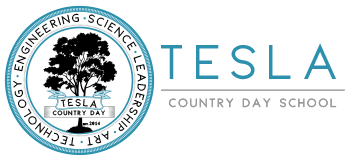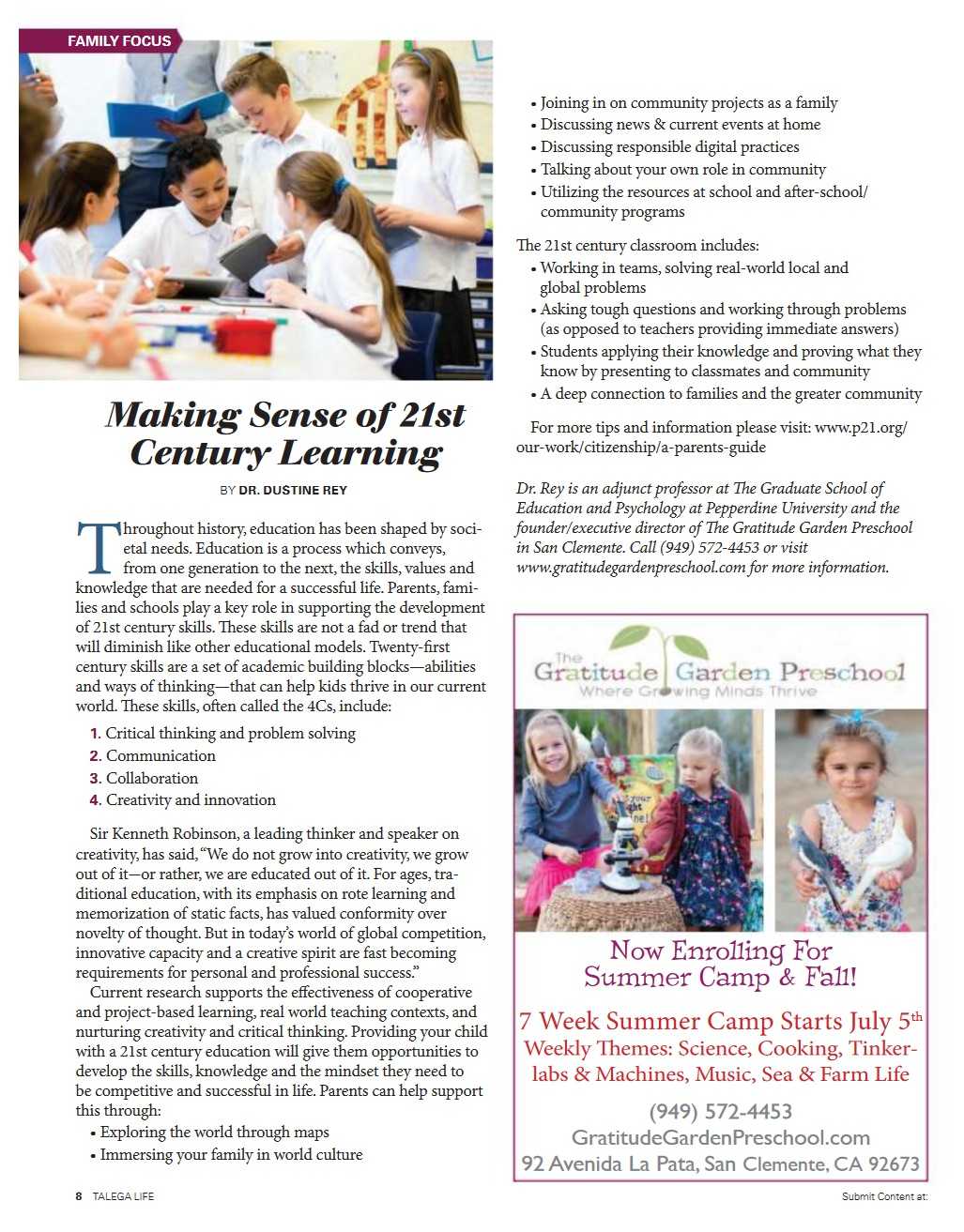Throughout history, education has been shaped by societal needs. Education is a process which conveys, from one generation to the next, the skills, values and knowledge that are needed for a successful life. Parents, families and schools play a key role in supporting the development of 21st century skills. These skills are not a fad or trend that will diminish like other educational models. Twenty-first century skills are a set of academic building blocks—abilities and ways of thinking—that can help kids thrive in our current world. These skills, often called the 4Cs include:
- Critical thinking and problem solving
- Communication
- Collaboration
- Creativity and innovation
Sir Kenneth Robinson, a leading thinker and speaker on creativity, has said, “We do not grow into creativity, we grow out of it¾or rather, we are educated out of it. For ages, traditional education, with its emphasis on rote learning and memorization of static facts, has valued conformity over novelty of thought. But in today’s world of global competition, innovative capacity and a creative spirit are fast becoming requirements for personal and professional success.”
Current research supports the effectiveness of cooperative and project-based learning, real world teaching contexts, and nurturing creativity and critical thinking. Providing your child with a 21st century education will give them opportunities to develop the skills, knowledge and the mindset they need to be competitive and successful in life. Parents can help support this through:
- Exploring the world through maps
- Immersing your family in world culture
- Joining in on community projects as a family
- Discussing news & current events at home
- Discussing responsible digital practices
- Talking about your own role in community
- Utilizing the resources at school and after-school/community programs
The 21st century classroom includes:
- Working in teams, solving real-world local and global problems
- Asking tough questions and working through problems (as opposed to teachers providing immediate answers)
- Students applying their knowledge and proving what they know by presenting to classmates and community
- A deep connection to families and the greater community
For more tips and information please visit: www.p21.org/our-work/citizenship/a-parents-guide

